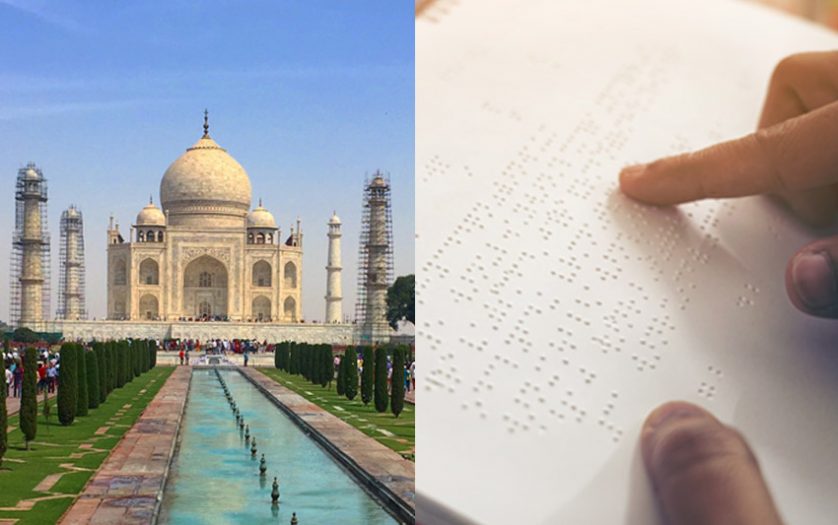
The Archaeological Survey of India (ASI) has released ‘Agra Monuments,’ a book in Braille to educate students with vision disabilities about the history of heritage sites in Agra on Wednesday.
“We always aimed to provide facilities to people from all sections of the community at heritage sites. It has come to our notice that a section of people with vision disabilities cannot enjoy and understand the historical significance of monuments. Considering these hiccups faced by the visually impaired people, we have decided to release a book on monument sites in Braille script.” said Basant Kumar, Superintendent, ASI.
“The book will be available for free. We’re sending its copies to schools & organisations working for such children and people with vision disabilities,” he added.
Kumar said that the book contains information on all the monuments situated in Uttar Pradesh, such as Agra Fort, Taj Mahal, Fatehpuri Sikri.








